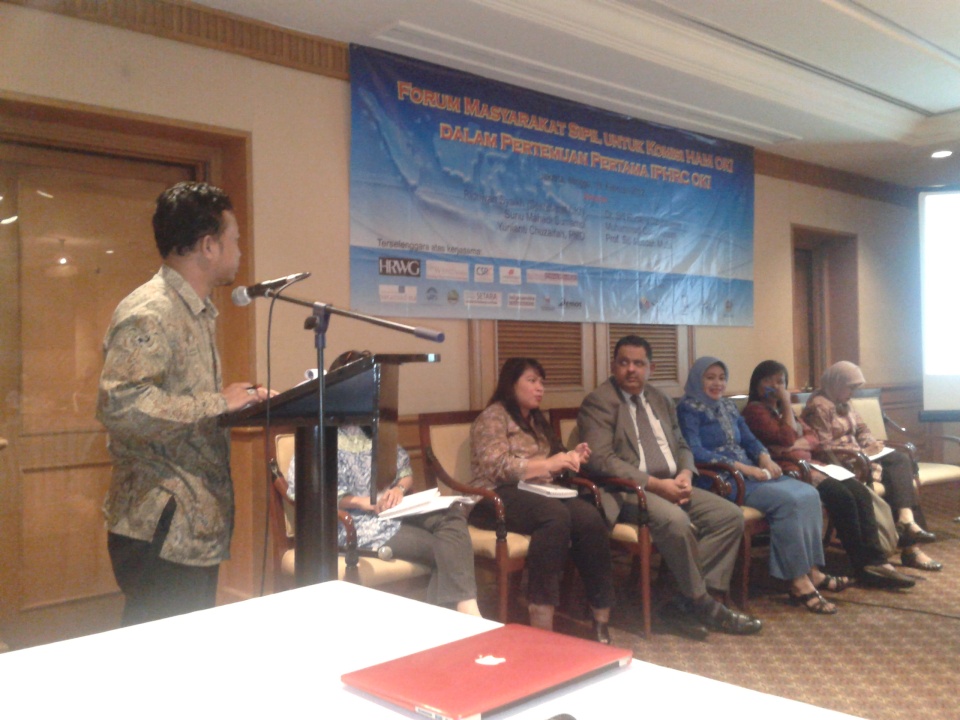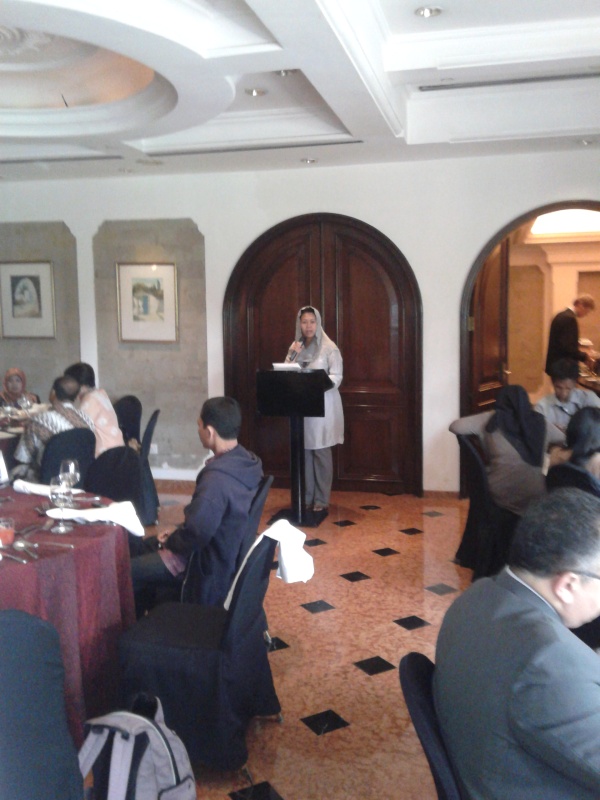Interview with Ekmeleddin Ihsanoglu, Secretary-General, Organization of the Islamic Conference
Interviewer: Toni Johnson, Senior Editor/Senior Staff Writer
October 1, 2010

With Islam the subject of intense scrutiny around the world, the Organization of the Islamic Conference–a group of fifty-six Islamic states–has launched efforts to take a broader role in international affairs. Ekmeleddin İhsanoğlu, secretary-general for the Organization of the Islamic Conference, says the organization is working on a meeting of religious scholars in Afghanistan similar to one it had in Iraq in 2006 to address sectarian violence and remind people “that nothing in Islam would allow them to kill anybody.” İhsanoğlu says Islam is compatible with democracy but notes sometimes the road to democracy is not easy. “It’s not that everybody is born democratic,” he says. “We have to work for that. We consider what happened in Afghanistan a step forward to democracy.”
You’ve said that the Organization of the Islamic Conference (OIC) is trying to organize a meeting of religious scholars, or ulema, for Afghanistan to combat radicalism. How this would work and what might it accomplish? You mentioned something the OIC had done similarly in Iraq?
In Iraq, during the heat of the sectarian fighting between Sunni and Shiite, and [with] civil war in sight, we looked to the matter. There were many attempts of reconciling, and I said, “Let’s take one aspect.” We took on the sectarian issue between the Sunnis and Shiites. We had in our organization a jurisprudence academy where scholars get together–this is separate from our political work. I asked them to prepare the ground for a meeting where we could get these people together.
Then we had to lobby with the ulema, all the leaders of sects in Iraq, to convince the muftis, the ayatollahs, to come together. Then we organized a kind of Islamic [consensus] to shun killing on basis of religious affiliation. We asked them to send their representative, and we sat together working a kind of an agreement, on the basis of religious texts, that prohibits killing on any basis.
Then we invited the grand ulemas–the grand muftis, the grand ayatollahs–and they came. It was October 2006 that they signed the [Makkah Al-Mukarramah] document and it was announced. Immediately it received big support from all over the Muslim world. Everybody committed himself to it. That was the way that violence on the basis of sectarianism stopped, because we reminded them that nothing in Islam would allow them to kill anybody–to kill people on the ground of if they’re Sunnis or Shiites or to destroy the mosques or shrines. Now the time has come to do that in Afghanistan.
Afghanistan recently had parliamentary elections in which voting fraud has been an issue. Last year’s presidential election in Iran was also contested. How important is democracy promotion and reform to the OIC? And given the challenges of some member states, how do you see OIC’s role in promoting democracy?
I do believe, firmly, that democracy is compatible with Islam. I think the parliamentarian system also is compatible with Islam. And I think the only way now for any society, whether a Muslim society or otherwise, to have good governance is through democracy. This is my personal conviction, and I think, to a great extent, I managed to put this in the new charter (PDF).
I come from [Turkey] which is fully democratic, where you have the change of power, change of govern

ment goes by
ballot not by bullet. [But] European societies, Western societies, America–they did not reach this level in one goal. You see revolutions, civil wars, crowns were beheaded. And some European countries–not the socialist ones who joined the Western club after the demise of the Soviet Union, but even in Western Europe, countries like Spain, like Portugal–lately joined democracy. In my generation there were no democracies in many European countries.
It’s not that everybody is born democratic. We have to work for that. We consider what happened in Afghanistan a step forward to democracy.
The OIC adopted a separate Cairo Declaration of Human Rights in 1990, a parallel document to the UN’s 1948 Universal Human Rights Declaration. Why do Muslims need a separate declaration? Are there provisions of the 1948 declaration that Muslims think are not, indeed, universal?
I believe that universal human rights are compatible with Islam, and I have no problem on that. I had made a statement in Geneva in the Humans Rights Council that we look forward to integrating our system [the Cairo declaration] with the United Nations system, and now we have established a new human rights committee for us.
Of course, you should not also deny or exclude other sensitive matters. There are certain areas where you have to respect the cultural diversity of the people. You should not take that everybody has to follow you 100 percent, because you don’t follow others 100 percent.
You’ve indicated that the 2005 Danish cartoon incident, in which Mohammed was depicted as a terrorist, was intended to incite hatred. The OIC is pushing for the UN Resolution on Defamation of Religions, which is intended to protect Islam from insult. Some critics see it as a potential international legal mechanism for censorship.
We are not for censorship. This is wrong notion, and the resolutions we’ve been submitting to the UN and will be [submitting to the] Humans Rights Council in Geneva or General Assembly don’t speak only about one religion. They speaks about religions, with “s.” So it is not only for ours. Of course we have to defend our faith. We have to defend our holy prophet, our values, and everybody, as we so respect others. We ask people to respect us, because dehumanizing, stigmatizing, insulting others is not freedom of expression at all.
There are plenty of things said in political discourse that could be construed as insulting. How do you decide what can and cannot be said?
Politics has its own rules, its own norms. This is a subject matter that doesn’t relate to our criticism or our sensitivity. In the Jyllands-Posten in my visit to Denmark, that same newspaper which published the cartoons, I said, “We are not against critique. You can criticize us as much as you like.” And there has been a literature of critique within Islam itself, otherwise all these mazhab schools of thought would not have come up. And European scholars, Russian scholars, American scholars, Muslim scholars themselves have written many books and critiques of many aspects of Islam.
The problem is that when you make a public insult by publishing demonizing cartoons, stigmatizing the Holy Prophet in a newspaper or in the TV or in the film, when you write a book, when you write an article, you challenge the feelings of 150 billion people who consider Mohammad as their holy prophet. Don’t show him as a terrorist, don’t show him in a naked way, don’t ridicule him. Like any other red line you have in any other culture. In many countries where these cartoons were published, the king or the queen or the head of state has a certain respect and nobody can criticize him or ridicule him. The same goes for the flag of the country.
In the United States, you are free to ridicule your leaders, you can burn the flag, you can desecrate any sacred object.
But in other countries it is not the case. You don’t need to ridicule Jesus Christ or to burn the Bible. This is an insult. Is burning the Quran or the Bible a sign of freedom? If I come and punch you, is it a sign of freedom? This is not ideas. There is a limit of decency. There is a limit of freedom. Your freedom ends where my freedom starts. You need freedom and responsibility. Otherwise it will be jungle.
Who decides what is sacred and what’s not sacred?
The international community decides. We are not are not encroaching on freedom of expression. We invite people to respect our values as they expect us to respect their values.
There’s a vocal anti-Muslim sentiment in the United States right now. How does this political discussion look to Muslims in the rest of the world?
These are unjustified sensitivities. That those who perpetrated 9/11 were Muslims; that is not the same as “Islam is responsible for that.” To equate them to Islam and say Islam that was the reason for that, that’s simplemindedness. They didn’t kill only Christians or Americans. There were Muslims who were killed there.
Source: Council on Foreign Relation













